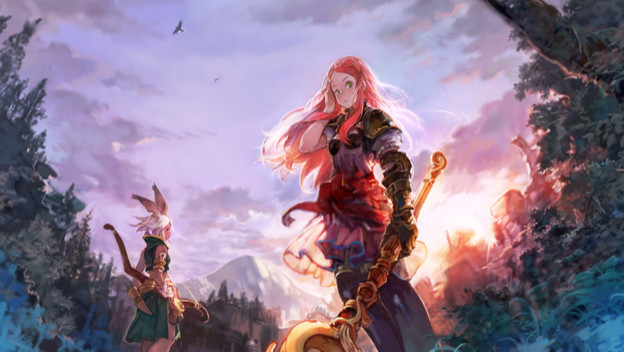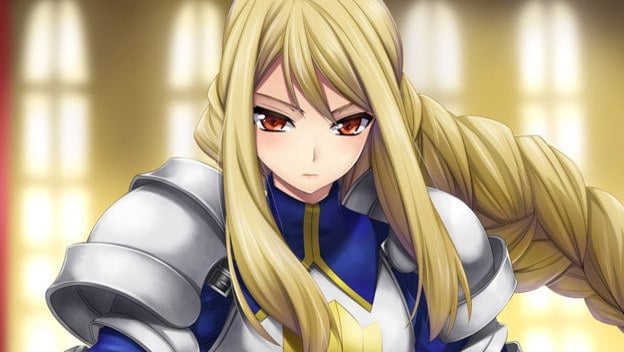I’ve mentioned before that my perception of video games was rather one-dimensional until my older brothers introduced me to the Final Fantasy series. I used to think of video games only as sidescrolling platforms, but Final Fantasy showed me that they are capable of not only telling a rich story (I mean, by SNES standards) but also providing more complex, tactical gameplay. Suddenly, I no longer relied solely on jumping on the heads of my enemies to defeat them (unless I decided to use a party of dragoons in Final Fantasy V ). Instead, I had to analyze the weaknesses of every enemy, and plan the attacks of my party members accordingly.
But as time passed, I recognized the tropes that Final Fantasy tends to rely on. After spending hours of time grinding for levels, I realized that approximately 90% of the game’s encounters can be finished by spamming my most powerful attacks, and using my healer for support. Sure, I have plenty of options to mix up my strategy, but I don’t see the point when I could just use what works. Still, in the series’ defense – not that it needs my approval – Square Enix retooled the battle system in every Final Fantasy , forcing you to customize your party members’ tactics.
Now, by now we’re all used to Square Enix’s tricks, but in the ’90s the company worried that some of the games might be too challenging for an American audience (I don’t think they intentionally meant that as an insult, my fellow Americans). It released Final Fantasy Mystic Quest , which was considerably easier, and didn’t have nearly as engaging of a story as the other games, but it’s worth checking out if only for the sake of being a Final Fantasy fan. Final Fantasy Tactics , on the other hand, went in the exact opposite direction. I don’t know if that was intentional or not, but it introduced some much needed complexity to the series, perfect for fans who thought they knew it all.
Starting with Final Fantasy IV , the series gained a reputation for character-driven stories reminiscent of Star Wars . I would say they’re about as straightforward as the original trilogy and The Force Awakens. Characters team up in media res to battle the empire – usually with only minor differences between Kingdoms – and gain magical abilities in the process. Just because they’re simple stories (until you get to, say, Final Fantasy VII ) doesn’t make them any less engaging. Hell, some of my favorite characters in the series come from VI .
Final Fantasy Tactics , on the other hand, offers one of the most complex stories in the franchise, which I would compare to the likes of Game of Thrones by George R.R. Martin and The Wheel of Time by Robert Jordan. The story takes place in a fantasy setting, but it isn’t as focused as paying homage to Star Wars and instead introduces much-needed political intrigue. It’s even relevant today due to its focus on class warfare. The main protagonist, Ramza, has his eyes opened to the privileges he’s taken for granted. Ramza leaves a life of royalty behind and becomes a sellsword, eventually coming into conflict with his noble acquaintances. The best part is exploring the land of Ivalice, which would be used in future Final Fantasy games, providing continuity.

Final Fantasy Tactics also introduces complexity in its combat system. No longer can we simply choose attacks. Instead, we have to consider the mobility of each character’s job for each turn. For instance, an archer can shoot enemy tiles from farther away, while a monk needs to close the distance before he can do any damage. Interestingly enough, magic attacks hurt all – enemy or friendly – units within their vicinity, so you have to plan magic attacks accordingly. Terrain also plays a role, limiting characters’ mobility as well as their ability to attack. For instance, if a character is submerged underwater, then he or she can’t attack. Essentially, battles are no longer mind-numbing grind fests; each encounter feels like, well, a battle – a skirmish in a grand, bloody war.
Tactics’ influence seems to have rubbed off on some mainline Final Fantasy games – mostly XII , which takes place in the same world of Ivalice. That said, the series, while still remaining grindy, has picked up some more complex traits, and even though I’m not a fan of the newer games stylistically, I am quite pleased with XII and XIII ’s complex battle systems. In those two games I felt like a commander who would watch for a change in the enemy’s pattern and then order my units to switch gambits or shift paradigms accordingly. I have no proof that Tactics is responsible for this, but I like to think so.
